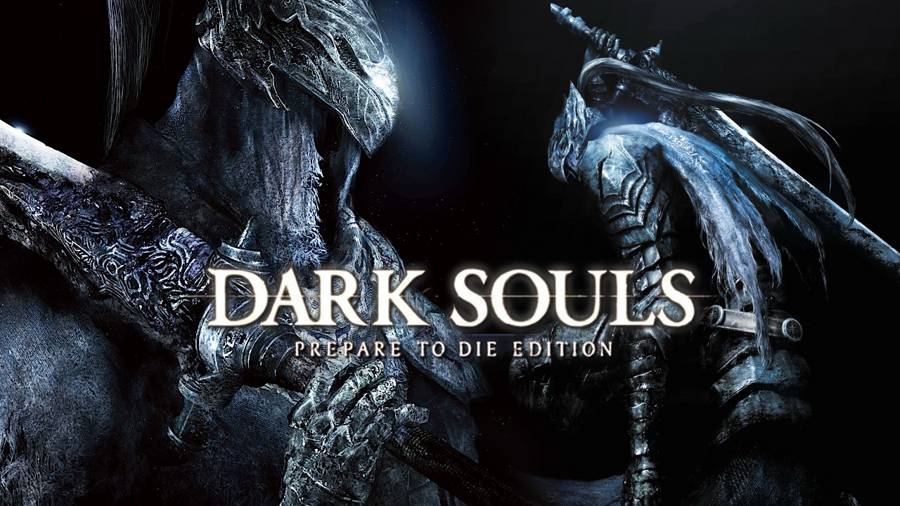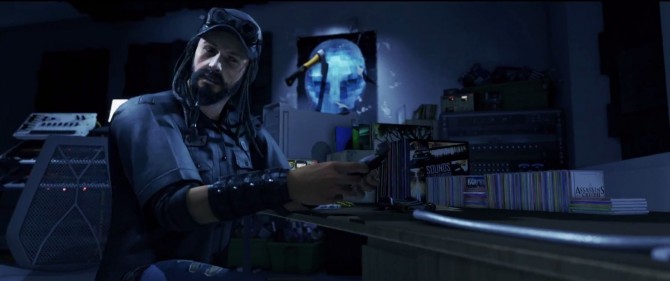

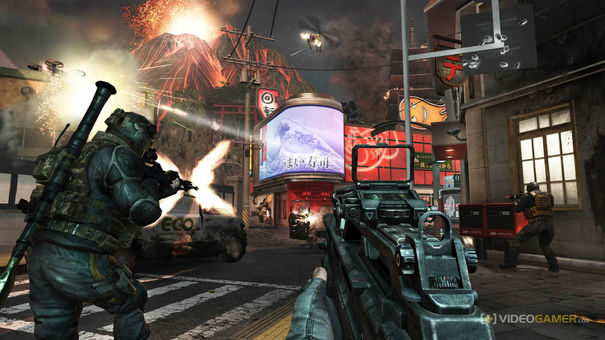

'Tacked-on' multiplayer has become, seemingly, one of the most disgusting attributes a game can affiliate itself with in today's gaming world. Regardless how popular its predecessor was or who's developing it, if an online component is added to the mix, a large portion of the community point their finger of doom and declare it a drain on resources that could, and probably will, ruin it for us all. The success of Call of Duty was something that no publisher could fail to ignore.
In many ways such a thought process makes sense too. If a studio, who are restricted by how many employees or how much cash they have at their disposal, have to focus on aspects that aren't part of the main game, then of course this strain on resources will weigh heavily on the final product. That's science*. What, then, happens to this argument if a third-party is brought in to the equation? The same blame banner is cast, even though you're, essentially, getting more value for your buck, even if that value is a multiplayer mode that wears thin after one match.
This goes further, too. No one, for example, yells at COD for including single-player even though by this stage it's most definitely the opener rather than the main event.
With all the above taken into account, mind, how are these games shaping up or actually playing out when released into the wild?
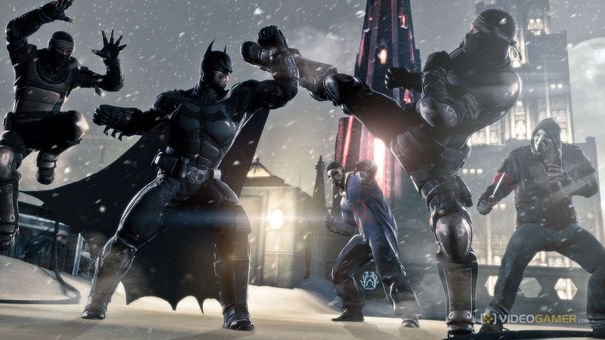
The latest triple-A title to raise more than a few eyebrows because it has decided to include multiplayer has already angered many Bat-fans. Claiming it'll take away from the stellar single-player built up by Arkham Asylum and Arkham City, the simple fact is people don't think it's necessary.
Given that development has gone to Splash Damage, though, means all you're really getting is an extra mode that, even if you ignored, won't take away from the campaign. Admittedly that's taking Warner Bros. at its word, but surely the biggest worry with Origins is that a new developer won't live up to the foundations already laid by Rocksteady. It's hugely unlikely anything that could jeopardise replicating this quality would be allowed to take place. Expect multiplayer here to be a genuine attempt at expanding the franchise rather than diminishing it.
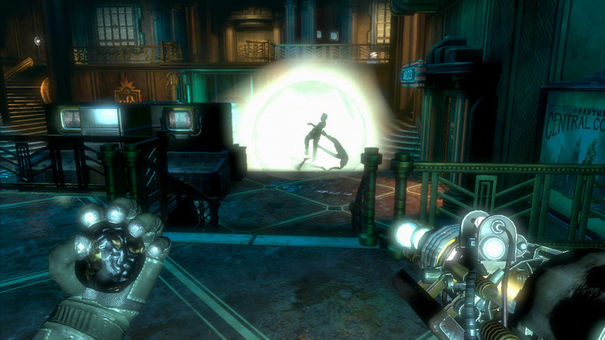
Falling into almost the exact same category as Batman, BioShock 2 faced the unenviable task of building on a game universally loved and doing so with a brand new developer at the helm. In hindsight opinion on the sequel is universally positive, a slow start giving way to a narrative that's, arguably, as good as the original, even if a little different.
It makes sense then that the multiplayer was farmed out to other pastures. Digital Extremes, well known for its help with the Unreal Tournament run of games, were no strangers to online shooters, so they were an intelligent choice – 2K Marin was left to do its own thing. Why BioShock 2 needed a team deathmatch mode is a whole other debate entirely.
There was still plenty to flesh out – as the campaign proved – and while the multiplayer had an excellent premise (if you can't wait for Infinite's DLC, you get a pretty good idea of Rapture pre-fall) it descended into madness when you realised there was a 'capture the sister' mode. A developer with a good sense of humour, or a studio just not thinking outside the box enough to make all the pieces fit? Although the lobbies have died down today, at the time there was certainly some interest.
There was an air of 'tacked-on' to it all, though, and now it's more or less deceased.
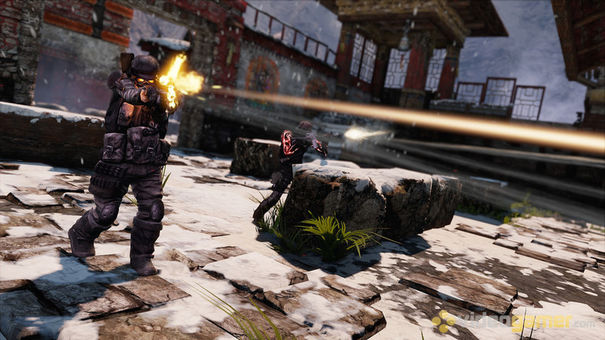
Whether or not Sony knew what it had with Uncharted is anyone's guess, but it damn sure knew how big the sequel could be. With Gears Of War proving to be a one-stop shop for 360 owners, it's feasible that Sony thought it needed something similar with the PS3. Sure, Killzone was flying the flag in that regard too, but given that Guerrilla’s shooter always felt like a response to Halo, the PlayStation brand wasn't going to settle for a single competitor.
Created by Naughty Dog – usually the hard piece of evidence needed to prove resources were being stretched – the multiplayer component with Among Thieves felt like it had gone in the other direction: with the story-driven core complete, the developer did the best they could in a short period of time to construct a mechanic that worked. And to many extents it did. Feeling like a hybrid of the main game coupled with the likes of Max Payne (it was really 'floaty), this was far deeper than many of its rivals, even if it felt like an area Uncharted never needed to step.
Be it because who was in charge or the smart upgrade system, which did do a solid job in keeping you hooked, Naughty Dog almost had a free pass with 2: those who weren't so impressed had one of the best adventures of all-time to play and the rest never had to take the disc out of the console.
The fact its sequel carried on the trend, and saw quite a big player migration across to it, means Uncharted has somewhat bucked the trend.
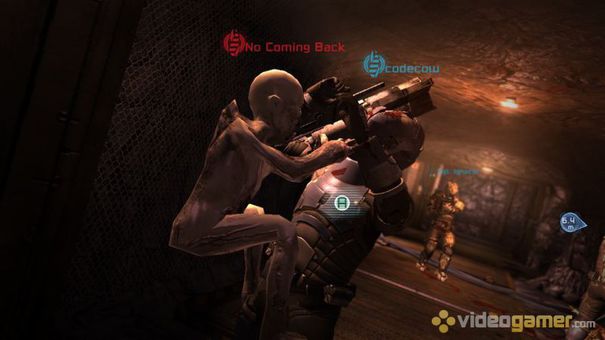
Anyone else starting to notice a pattern? Release a new IP, find a serious amount of success and then ensure, almost immediately, that multiplayer is included in the sequel. The problem where Dead Space 2 was concerned is that the concept never lived up to its potential. What should've been Left 4 Dead in space – with one team controlling Isaac and friends, the other the necromorphs – fell into an odd shooting gallery where nothing ever really fit together as you assumed it would.
At the time, Visceral sold its idea as something that 'couldn't be found anywhere else', even going as far as to remind us all that you couldn't control a demon baby in Battlefield. Hmm... Despite such bold words, it felt far too similar to other games that prided themselves on their shooting mechanics. Dead Space couldn't compete going toe-to-toe in that sense – its approach to survival horror is what set it apart – meaning it wasn't unique enough to capture the imagination. Cue a quick community death and the removal of it in Dead Space 3.
Publisher-pressure may have been responsible for this one... RIP.
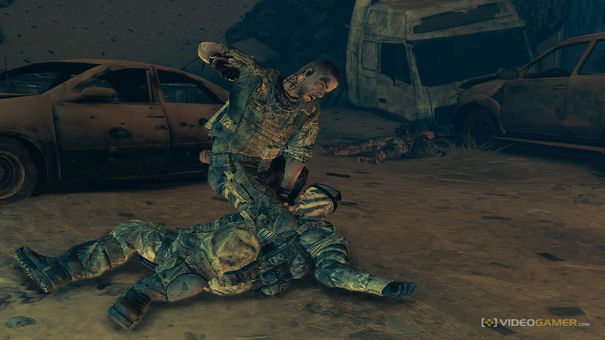
There's a very good chance that 2K decided Spec Ops: The Line needed multiplayer. The argument that having two studios on-board lightens the load does carry some weight, but there's still only one pot of cash. If that doesn't get increased, sacrifices are always going to be made. Again, this is only speculation but when your lead designer, Cory Davis on this occasion, describes your online mode as a “low quality COD clone” and “a waste of money” alarm bells surely start to ring.
This is what happened with last year's Spec Ops, though, complete with Davis admitting the publisher insisted multiplayer featured. In turn, nobody played it and the servers became a ghost town within weeks.
The definition of 'tacked-on'.
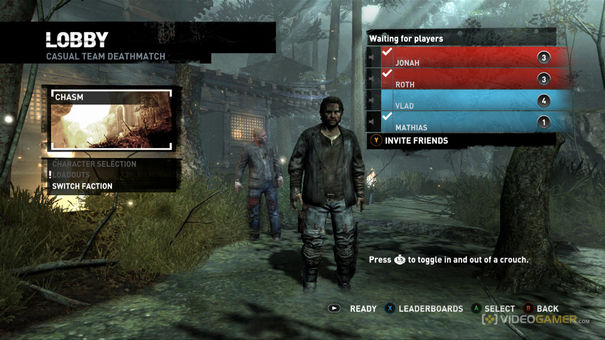
Did you even know Tomb Raider had multiplayer? The amount of people who have played the game to completion and responded with: “Wait... there's more?” is surely far higher than Square Enix would've liked, but this certainly seems to be the case.
Feeling like it was an attempt to go like-for-like in terms of options with Uncharted, online Lara was bland and made the horrible decision to take what had made the single-player so good and craft traditional modes around it. While deathmatch and objective-based matches are all well and good, they do nothing to improve upon the Tomb Riader template – it was as if they'd all stumbled somewhere they didn't belong.
An attempt at something different, or the need to tick a box that most games now do? The latter seems likely and nobody is talking about it now.
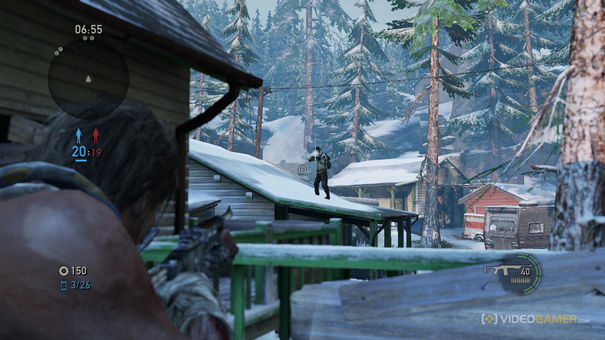
Although it may seem unfair to call out Naughty Dog twice there's a solid reason for it: The Last Of Us' multiplayer is one of the more intelligent examples of using your core gameplay to then go on and build a multiplayer that compliments it.
Every aspect of Naughty Dog's infected nightmare, like the single-player, focuses on how the game plays. It's a constant battle for survival that mimics what you've already been doing for 15 plus hours. There's even a meta-narrative of sorts that sees you trying to outlast your rival team throughout the 'zombie' apocalypse.
It may not have garnered as much attention as Joel and Ellie's adventure, but it's a prime of example of adding to a game's bread and butter rather than taking away from it. Yes, the treasure chest at Naughty Dog's disposal was probably more lucrative than most, but in terms of success, and avoiding the dreaded raised eyebrow of disapproval, it was really rather well done.
* It's not science


